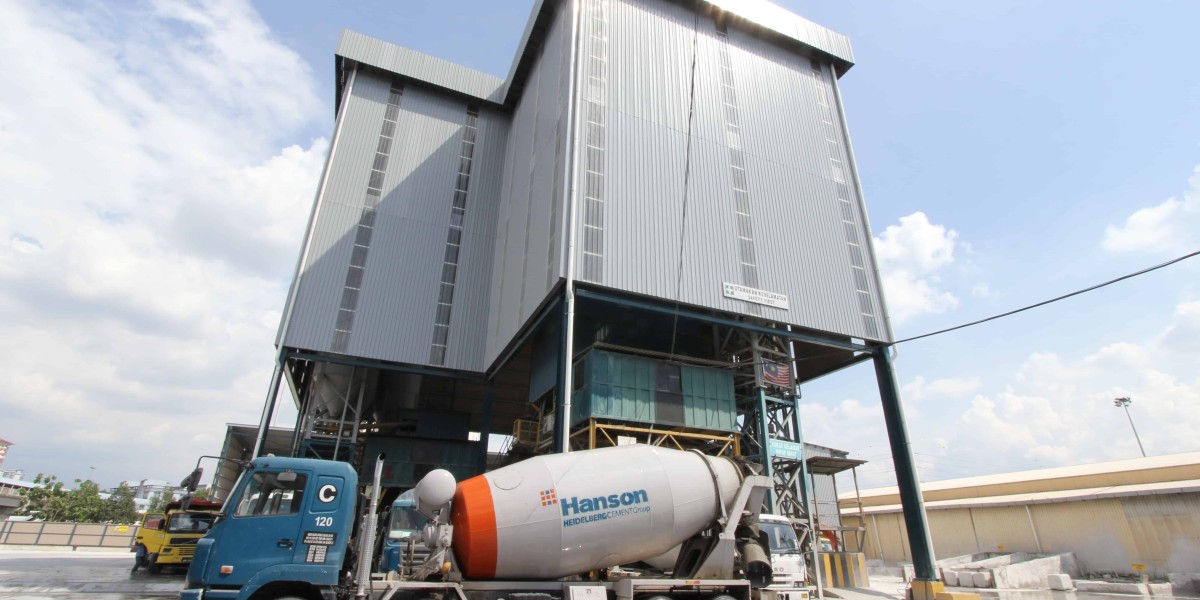In the world of modern construction, ready mix concrete (RMC) has become a crucial material, providing builders with a more efficient, reliable, and cost-effective solution. Ready mix concrete, which is produced in a controlled environment and delivered to the construction site in a ready-to-use form, eliminates the need for on-site mixing and offers numerous advantages. In this comprehensive guide, we will explore the benefits, uses, and the role of ready mix concrete in revolutionizing the construction industry.
What is Ready Mix Concrete?
Ready mix concrete is a type of concrete that is manufactured in a batching plant according to specific requirements and then delivered to the construction site in transit mixers. Unlike traditional concrete that is mixed on-site, RMC is pre-mixed, ensuring consistent quality and performance.
Components of Ready Mix Concrete:
- Cement: The primary binding agent in concrete.
- Aggregates: Sand, gravel, or crushed stone that provide strength and volume.
- Water: Activates the cement and helps the concrete achieve its proper consistency.
- Admixtures: Chemical additives that improve the performance of the concrete, such as faster setting times or increased durability.
Benefits of Ready Mix Concrete
Ready mix concrete offers a range of advantages that make it the preferred choice for many construction projects, large and small.
1. Quality Assurance
One of the main benefits of ready mix concrete is the consistent quality it provides. Since the concrete is mixed in a controlled environment with precise measurements, you can be sure that every batch meets the required specifications.
- Consistency: RMC ensures uniformity in the mix, reducing variability and the risk of poor-quality batches.
- Reduced human error: On-site mixing can lead to errors in proportioning, but with ready mix concrete, the recipe is strictly followed, ensuring accuracy.
2. Time and Labor Savings
Using ready mix concrete can significantly speed up construction projects. The material is delivered ready for use, eliminating the need for on-site mixing.
- Faster project completion: The quick availability of ready mix concrete allows for faster pours and keeps the project timeline on track.
- Reduced labor: With no need for on-site mixing, fewer workers are required, reducing overall labor costs and logistical complexity.
3. Cost Efficiency
Although the upfront cost of ready mix concrete may seem higher compared to traditional on-site mixing, the overall cost savings are substantial.
- Less material waste: Since RMC is precisely measured and mixed, there’s less risk of over-ordering or wasting materials.
- Reduced storage costs: With no need to store raw materials like sand or gravel on-site, there’s no need to allocate space or worry about material degradation.
- Energy savings: RMC production is more energy-efficient, reducing fuel and power consumption compared to mixing on-site.
4. Environmentally Friendly
Ready mix concrete is also more environmentally sustainable than traditional methods. By batching concrete in a controlled setting, producers can reduce waste, optimize resource use, and minimize environmental impacts.
- Reduced emissions: Centralized production helps lower the overall carbon footprint by minimizing transportation and waste.
- Sustainable admixtures: Many ready mix concrete suppliers offer eco-friendly admixtures that improve durability and sustainability, reducing the need for frequent repairs and replacements.
5. Increased Durability
Ready mix concrete is engineered for durability and longevity, making it an excellent choice for high-stress environments such as roads, bridges, and large commercial structures.
- High-performance admixtures: These improve the durability of concrete by increasing its resistance to water, chemicals, and extreme temperatures.
- Stronger foundations: The consistent quality of RMC ensures stronger, more reliable structures that last longer.
Uses of Ready Mix Concrete
Ready mix concrete is versatile and can be used in a wide range of construction applications. Whether you're building a home foundation or a large-scale infrastructure project, RMC can be tailored to meet specific project requirements.
1. Residential Construction
In residential projects, ready mix concrete is commonly used for:
- Foundations: RMC provides a stable and reliable base for homes, garages, and other structures.
- Driveways and sidewalks: The consistent quality and quick drying times make it ideal for driveways, sidewalks, and patios.
- Retaining walls: RMC can be formulated for high strength, making it perfect for retaining walls that need to withstand soil pressure.
2. Commercial and Industrial Projects
For larger commercial and industrial construction, ready mix concrete is indispensable due to its strength and durability.
- High-rise buildings: The uniformity of RMC ensures that skyscrapers and office buildings have a strong and stable foundation.
- Parking structures: RMC can withstand heavy traffic loads and extreme weather conditions, making it ideal for parking decks and garages.
- Warehouses: Industrial floors that require high load-bearing capacity and resistance to wear are best constructed using RMC.
3. Infrastructure Projects
RMC is the go-to solution for infrastructure developments like highways, bridges, and tunnels.
- Roadways and bridges: The durability of ready mix concrete ensures long-lasting roads and bridges that can handle constant traffic and environmental stressors.
- Waterways and dams: Projects that involve water management, such as dams or canals, benefit from the waterproof and durable nature of ready mix concrete.
- Airport runways: RMC is used in constructing runways and taxiways due to its high-strength and fast-setting properties.
How Ready Mix Concrete is Revolutionizing Construction
Ready mix concrete has fundamentally changed how modern construction projects are completed. Its combination of efficiency, quality, and sustainability is helping to redefine industry standards in several ways.
1. Faster Project Turnaround
With ready mix concrete, construction timelines are drastically reduced. Since there’s no need for on-site mixing, projects move forward much more quickly. Ready mix concrete also dries faster, which means subsequent construction stages can begin sooner, resulting in shorter overall timelines.
2. Enhanced Structural Integrity
The controlled production process used in batching plants ensures that each batch of concrete meets the exact strength and performance specifications required for different types of projects. This means stronger foundations, more durable structures, and less need for maintenance down the line.
3. Customizable Solutions
Ready mix concrete can be tailored to suit the specific needs of any project. Whether it’s high-strength concrete for a bridge or a lightweight mix for residential use, RMC can be customized with admixtures that enhance its properties, such as setting time, strength, or water resistance.
4. Improved Safety
Pre-mixed concrete reduces the risks associated with on-site mixing, such as accidents related to improper handling or incorrect proportions. RMC ensures that the concrete mix is safe and consistent, providing a safer work environment for construction crews.
Challenges and Considerations with Ready Mix Concrete
While ready mix concrete offers numerous advantages, there are also certain challenges to consider, especially when dealing with large or complex projects.
1. Transportation Limitations
Ready mix concrete must be delivered within a specific time frame to ensure it retains its consistency and quality. Traffic delays or long distances between the batching plant and the job site can affect the performance of the concrete.
2. Cost for Smaller Projects
For small projects, the initial cost of ordering ready mix concrete might seem higher than mixing on-site, but it pays off in terms of quality, speed, and long-term savings.
3. Weather Conditions
Adverse weather conditions, such as extreme heat or cold, can impact the quality of the concrete. It’s important to account for weather and ensure that proper curing methods are in place to avoid damage.
Conclusion
Ready mix concrete is a game-changing solution that is revolutionizing the construction industry. From residential homes to massive infrastructure projects, RMC provides a range of benefits, including time savings, improved quality, and cost-efficiency. By utilizing ready mix concrete, builders can streamline operations, reduce environmental impact, and ensure more durable, long-lasting structures.







